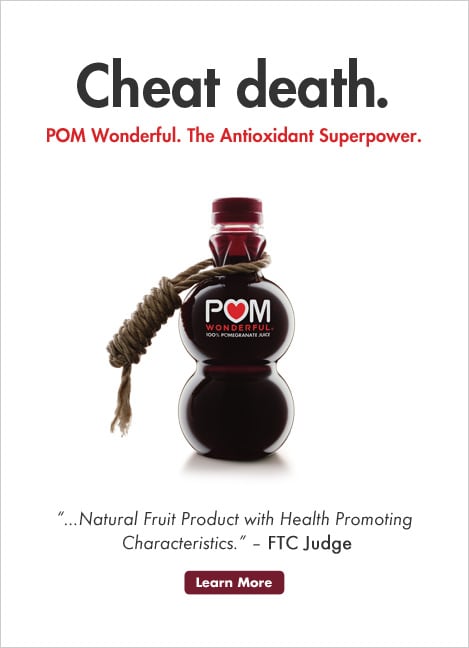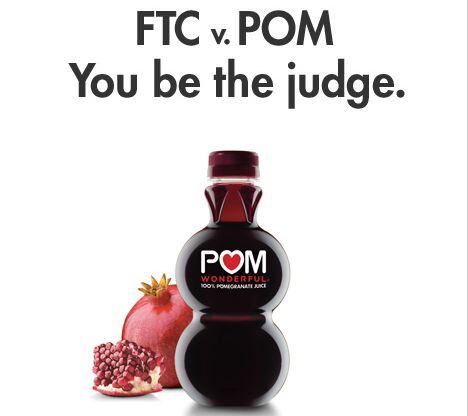Or will other kinds of evidence suffice?
An answer is expected on January 18, when there should be a final ruling on the high-profile false advertising case brought by the Federal Trade Commission (FTC) against pomegranate juice maker POM Wonderful in 2010.
The case is being followed closely by the food and supplements industry as it addresses broader questions over the substantiation required for making claims about foods as distinct from drugs.
Background to the case

In an initial decision filed in May 2012, administrative law judge (ALJ) Michael Chappell criticized several of POM’s ads, which claimed its juice could reduce the risk of prostate cancer and cardiovascular disease.
However, he also challenged arguments from the FTC that ‘competent and reliable scientific evidence’ must equate to least two RCTs, in a move one food law attorney described as a “stunning rejection” of the FTC’s approach. It was also welcomed by industry trade associations, who have long argued that randomized controlled trials should not be the sole basis for substantiating claims.
Both sides appealed, and are now waiting for FTC Commissioners to make a final decision regarding whether to adopt, in whole, in part, or not at all, Chappell’s decision.
Attorney: FTC will likely expect two trials - without explicitly saying so…
However, Bethany Kennedy, an Arizona-based associate at legal firm Emord & Associates, predicts that confusion may still reign after January 18, regardless of what the Commission decides.
Writing in her law firm’s blog, Kennedy notes that, “Even if the staff loses before the full Commission, it is possible that they will effectively circumvent the decision by challenging the adequacy of evidence case by case until the two clinical trial threshold is met.
“In other words, rather than overtly demanding the two clinical trials, the staff could consistently reject evidence less than that on one or more subjective grounds, thus creating a de facto two clinical trial standard over time."
Firms are groping in the dark for answers

Under its ‘competent and reliable scientific evidence’ substantiation standard, FTC acknowledges that different types of claims require differing levels of evidence.
However, the lack of clarity over exactly what is expected “yields endless conflicts with the regulated class” leaving firms “groping in the dark for answers”, says Kennedy.
The FTC and FDA have previously said that there is no fixed protocol concerning the types of studies needed, how many studies are needed, or how many test subjects are necessary, just that “they know it [competent and reliable evidence] when they see it”, she adds.
“[But] in our experience, whenever the FTC challenges a claim, they invariably demand… near conclusive proof of a claim’s validity, i.e., well-designed, randomized, prospective, double-blind, placebo-controlled clinical trials in support of each claim.”
The prudent advertiser should strive to attain the two clinical trials…
So what can food and supplement firms take away from all this?
Better to be safe than sorry, suggests Kennedy: “The prudent advertiser mindful of this administration’s bias in favor of greater scientific evidence supportive of claims should strive to attain the two clinical trials in support standard whenever feasible.”
She adds: “This is particularly true in light of the Office of Inspector General’s October 2012 report, ‘Dietary Supplements: Structure/function Claims Fail to Meet Federal Requirements,’ which indicated that claim substantiation will likely be a big issue in the near future.” (Click here to read more about this report.
What happens next?
Asked whether the Jan 18 ruling would mark the end of the matter, an FTC spokeswoman told FoodNavigator-USA: "If the Commission votes to accept [Chappell's initial decision], POM will have the option of appealing to the federal court of appeals and to the Supreme Court, if the Supreme Court would agree to hear the case."
